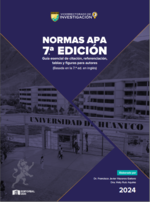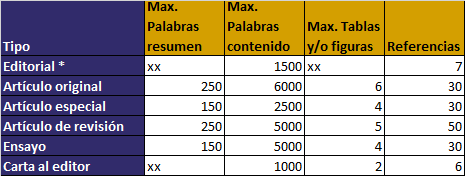Gamification in the improvement of communication skills in primary school students
DOI:
https://doi.org/10.37711/desafios.2023.15.2.535Keywords:
communication, student, skill, educational game, communication skillsAbstract
Objective. To establish the influence of gamification on the improvement of communication skills in primary school students. Methods. The quantitative approach and design were quasi-experimental. The study involved 80 students divided between the control group and the experimental group. The inferential statistic applied was the Mann-Whitney
U test. Results. In the experimental group, 90% of the students in the pretest were at a defcient level, and only 10% were at a regular level. However, after the application of gamification, 78% of the students reached an excellent level, 20% a good level, and only 3% remained at the regular level. The Mann-Whitney U statistic showed a bilateral significance of
0.000. Conclusions. Gamification influences the improvement of communication skills in primary school students; this is because, through gamification, the student interacts with their peers, communicating in different ways with the intention of overcoming the challenges presented by the game.
Downloads
References
Bauman, Z. (2007). Los retos de la educación en la modernidad líquida. Gedisa.
Escobar, F., y Gómez, I. (2020). WhatsApp para el desarrollo de habilidades comunicativas orales y escritas en adolescentes peruanos. Revista Comunica, 28(65), 111-120. https://doi.org/10.3916/C65-2020-10
Groening, C., & Binnewies, C. (2019). Achievement unlocked – the impact of digital achievements as a gamifcation element on motivation and performance. Computers in Human Behavior, 97(2019), 151- 166, https://doi.org/10.1016/j.chb.2019.02.026
Informe de Belmont. (1979, 18 de abril). Principios y guías éticos para la protección de los sujetos humanos de investigación. Observatori Bioética i Dret. https://www.bioeticayderecho.ub.edu/archivos/norm/InformeBelmont.pdf
Lamrani, R., Abdelwahed, H., Chraibi, S., Qassimi, S., & Hafdi, M. (2018). Gamification and Serious Games Based Learning for Early Childhood in Rural Areas. International Conference on Model and Data Engineering, 79-90. https://doi.org/10.1007/978-3-030-02852-7_7
Mendoza, C. (2021). Las habilidades sociales para mejorar la expresión oral en estudiantes del primer grado de educación primaria. Revista Polo del Conocimiento, 6(12). https://dialnet.unirioja.es/servlet/articulo?codigo=8219257
Morales, S. (2021). La gamifcación para mejorar el pensamiento lógico en estudiantes del nivel inicial.
Revista Arbitrada Interdisciplinaria Koinonía, 6(4), 16-26. https://dialnet.unirioja.es/servlet/articulo?-codigo=8150556
Pinargote, K., y Cevallos, A. (2020). El uso y abuso de las nuevas tecnologías en el área educativa. Dominio de las Ciencias, 6(3), 517-532. https://dominiodelasciencias.com/ojs/index.php/es/article/view/1297/2216
Rubio, K. (2022). Estrategias de gamificación para la resolución de problemas de matemática en estudiantes del segundo grado de primaria, Trujillo 2021 [Tesis de doctorado, Universidad César Vallejo]. Repositorio UCV. https://hdl.handle.net/20.500.12692/83237
Vergara, C., Nielsen, J., y Niño, J. (2021). La gamificación y el fortalecimiento de la habilidad oral en inglés a niños de primera infancia. Revista de Investigación Desarrollo e Innovación, 11(3), 569-578. https://dialnet.unirioja.es/servlet/articulo?codigo=8132328
Downloads
Published
How to Cite
Issue
Section
License
Copyright (c) 2024 Willy Gastello Mathews, Joel Núñez Mejía, Joel Núñez Mejía

This work is licensed under a Creative Commons Attribution 4.0 International License.
a. Los autores conservan los derechos de propiedad intelectual (copyright) de las obras publicadas, cediendole a la revista el derecho de primera publicación.
b. Los autores retienen sus derechos de marca y patente, y también sobre cualquier proceso o procedimiento descrito en el artículo.
c. Los autores retienen el derecho de compartir, copiar, distribuir, ejecutar y comunicar públicamente el artículo publicado en la RD (por ejemplo, colocarlo en un repositorio institucional o publicarlo en un libro), con un reconocimiento de su publicación inicial en la RD.
d. Los autores retienen el derecho a hacer una posterior publicación de su trabajo, de utilizar el artículo o cualquier parte de aquel (por ejemplo: una compilación de sus trabajos, notas para conferencias, tesis, o para un libro), siempre que indiquen la fuente de publicación (autores del trabajo, revista, volumen, número y fecha).























